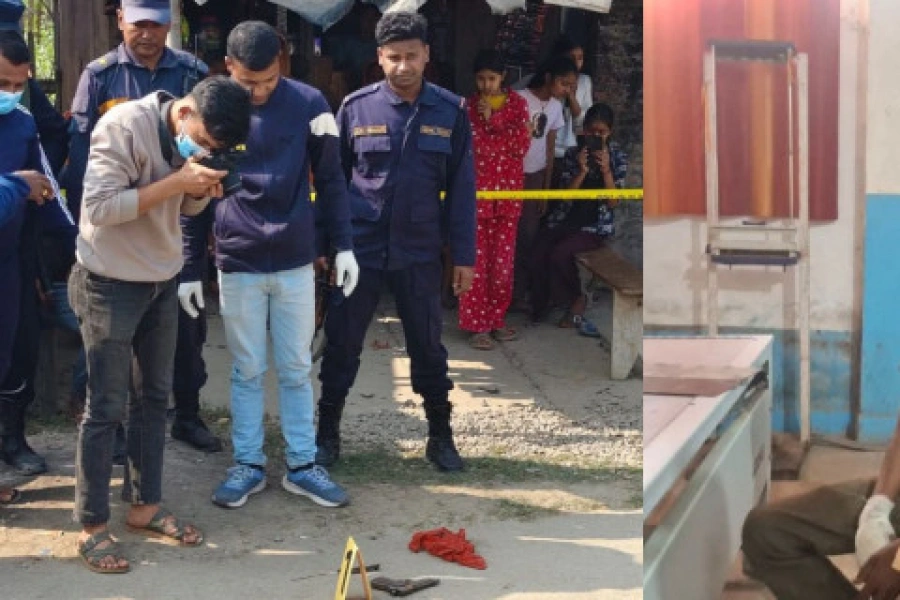Creating an efficient system for erudite returnees to contribute effectively to Nepal.
Mr S. Sharma, Ph.D, 46, is a seasoned expert who has been analyzing international monetary policies in low income nations for the past 8 years. With his experience and knowledge he is thinking of returning back to materialize his expertise to influence financial development and bolster law enforcement back in Nepal. Despite the dream, the transition may not be bed of roses and as his aspirations might find themselves entangled in the web of the ubiquitous bureaucratic red tape that plagues his homeland. This hassle serves as the nemesis for him to sit on the fence whether to stay or return back for better.
Although the analogy of Dr. Sharma is merely ‘hypothetical', his predicament is far from this imaginary scenario that mirrors the reality faced by many highly skilled Nepalese professionals seeking to return and give back to their nation. The status quo is distressing as the potential of erudite returnees remains largely untapped, depriving the nation of their essential contributions. It is imperative to look further into the reasons for Nepal's prevalent red tape in order to delve deeper into this serious issue. Making use of obsolete procedures, bottlenecks, and bureaucratic inefficiencies will be the basis for developing efficient alternatives. A comprehensive strategy that simplifies procedures and encourages efficiency would require cooperation between the public and corporate sectors as well as civil societies.
Bureaucratic red tape a major obstacle to reconstruction

So what can the authorities do?
This article will consider two cogent ways to tackle this disenchantment. At the onset, the reliance on paper-based procedures is a major reason for the bureaucratic red tape in Nepal, so E-governance can revolutionize the potential to unlock the country’s potential. We’ve witnessed positive changes when applying for NOC, passport, PAN and other governmental services through the website and the ‘Nagarik’ app. Still, there is room for more advancement. This transition to effective digital governance can expedite documentation, approvals and resulting in reduced time and effort. This allows for more transparency and efficient processing and encourages individuals like Dr. Sharma.
Secondly, navigating the bureaucracy can be a formidable task to the newcomers, whether it be at the offices to register their think tanks or pursuing other ventures. However, a possible solution lies in establishing a specialized Task Committee comprising representatives from the government, private sector, and volunteers alike who can serve as a liaison between the returnees and concerned authorities, guiding them through the bureaucratic maze and supporting their integration. These team members can also advise on the existing policies, networking, concerned stakeholders, and avenues that can strengthen and cater to the returnees’ vision for their contribution.
To recapitulate, reducing bureaucratic red tape in Nepal and developing an effective system for erudite returnees is critical to unlocking the nation's unrealized potential. By embracing digitization and e-governance, simplifying paperwork, and fostering transparency and accountability, the government may make considerable progress in this pursuit. Furthermore, the formation of a dedicated Task Committee can act as a guiding light, providing personalized support, expert guidance, and significant networking opportunities for returning professionals like Dr. S. Sharma and myriad others.
By amalgamating these cogent approaches, Nepal can create a welcoming environment for its skilled diaspora to return, contribute effectively, and materialize their dreams of influencing financial development and law enforcement. As the barriers of bureaucratic red tape dissolve, the nation can usher in a new era of collaboration between erudite returnees and various stakeholders, leading to transformative advancements in different sectors. The synergy between the government, corporate sector, and civil society will become the catalyst for progress, ushering in an era where the aspirations of talented individuals align harmoniously with the nation's growth trajectory. Together, we can transcend the red tape and forge a brighter future for Nepal’s upcoming generations.








































